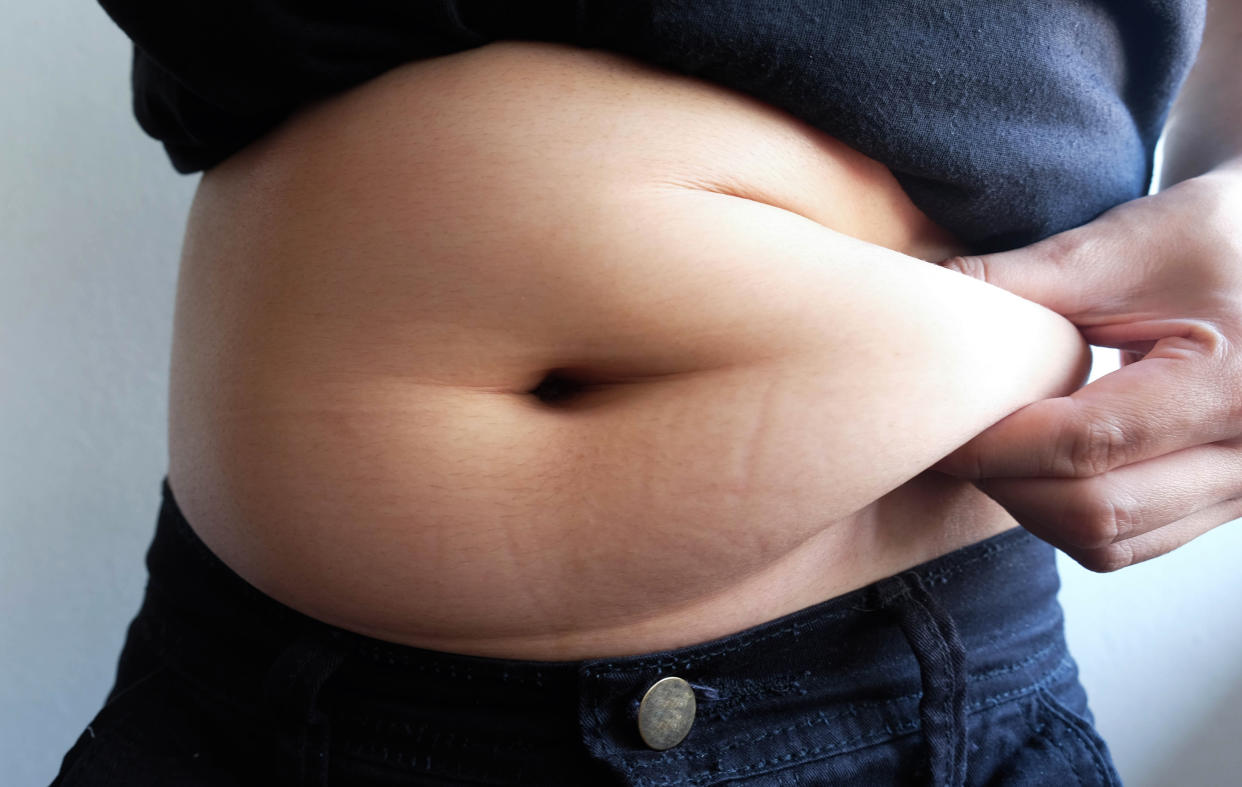Obesity isn't a choice – nor is it 'down to a lack of willpower'

Individuals are not to blame for being obese, according to a new report.
Obesity is a term to describe being very overweight, with a lot of body fat. Being obese carries a serious health risk and the condition even overtook smoking as a risk factor for the four most common types of cancer earlier this year.
Given some 27.8% of adults in the UK are now said to be obese – making us Europe’s third fattest nation, according to the World Health Organisation – the issue of how to tackle the national health crisis has become more important than ever.
But the latest findings suggest we first need to stop regarding obesity as an individual’s “choice”.
"Obesity is not simply down to an individual's lack of willpower,” reads the report from the British Psychological Society.
READ MORE: How much sugar is in your favourite 'healthy' drink?
Instead, obesity is influenced by a mixture of genes and socio-economic background, it outlines.
“The people who are most likely to be an unhealthy weight are those who have a high genetic risk of developing obesity and whose lives are also shaped by work, school and social environments that promote overeating and inactivity,” the report states.
"People who live in deprived areas often experience high levels of stress, including major life challenges and trauma, often their neighbourhoods offer few opportunities and incentives for physical activity and options for accessing affordable healthy food are limited.”
Up to half of adults who attend specialist obesity services have also experienced childhood adversity, the report added.
It is therefore “important to avoid language and explanations that locate the ‘problem’ of obesity within individuals”, the experts concluded.
“Whilst obesity is caused by behaviour, those behaviours do not always involve 'choice' or 'personal responsibility'.”
The idea of obesity-promoting – or “obesogenic” – environments has been spoken about before, as has the notion of so-called obesity genes.
Speaking on ‘Good Morning Britain’ in August 2019, Dr Peter Swinyard, chairman of Family Doctor Association, said: “Some people are programmed to be slim and some people are programmed to be fat.”
READ MORE: Gym causes outrage by asking women 'can you pinch your fat?'
He added: “If you have a lot of obese genes and you are in an obesogenic environment, and the food companies are very pleased to sell you lots of yummy things, then you are going to be fat if you have those obese genes.”
How do you know if you’re obese?
Based on the body mass index – a measure used to assess whether you’re a healthy weight for your height – being between 30 and 39.9 means you are classified as obese.
According to the NHS body mass index, if your BMI is:
below 18.5 – you're in the underweight range
between 18.5 and 24.9 – you're in the healthy weight range
between 25 and 29.9 – you're in the overweight range
between 30 and 39.9 – you're in the obese range
READ MORE: Parents 'aren't fit enough' to keep up with their children
You can use the NHS’s BMI healthy weight calculator to work out whether or not you are obese.
New research has also suggested waist size could offer a better indication of a woman’s overall health and risk of obesity-related illness than body mass index (BMI).
Those looking to lose weight can consult the NHS weight loss plan for support. The body offers a free 12 week diet and exercise plan.

 Yahoo Lifestyle
Yahoo Lifestyle 

